PRISCILLA (2023)
When teenage Priscilla Beaulieu meets Elvis Presley, the man who is already a meteoric rock-and-roll superstar becomes someone entirely unexpected in private moments.
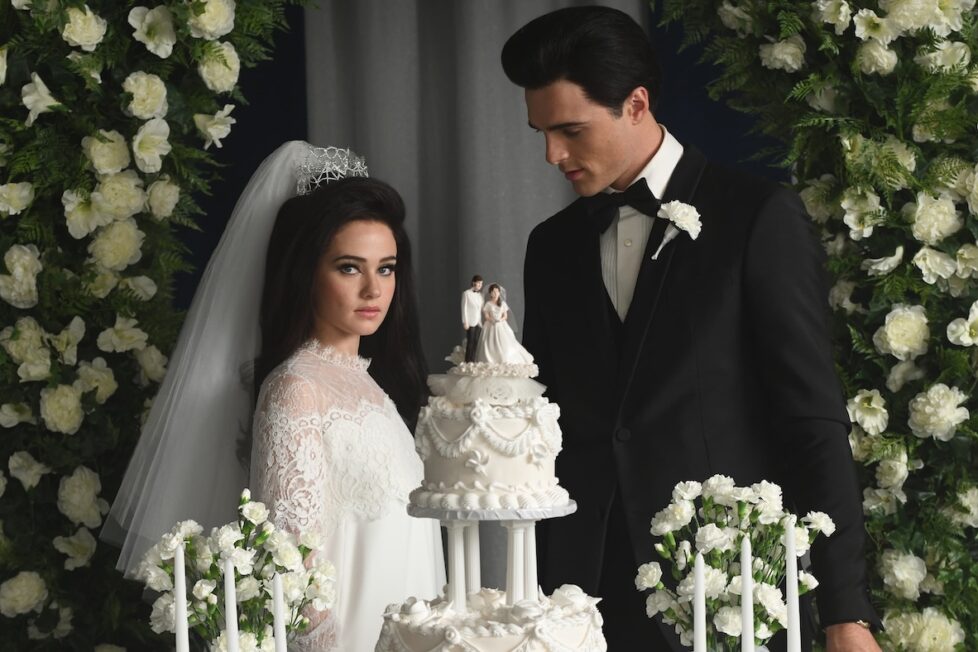
When teenage Priscilla Beaulieu meets Elvis Presley, the man who is already a meteoric rock-and-roll superstar becomes someone entirely unexpected in private moments.


Sofia Coppola has made a career out of examining the performance of femininity. From her first feature, The Virgin Suicides (1999), to her latest Priscilla, her mostly female protagonists search for autonomy within the context of the male gaze. Time and again, she’s deconstructed the trappings of being a female in proximity to power, all while maintaining a fierce protectiveness of her heroine’s point of view. At times, this has led to an overly simplistic interpretation of those characters, as with The Bling Ring (2013) or The Beguiled (2017). Though she always succeeds in making her characters interesting, Coppola sometimes fails to convey what makes their stories compelling.
Thankfully, Priscilla avoids these pitfalls; indeed, it’s her most riveting and emotionally captivating film in years. Adapted from Priscilla Presley’s 1988 autobiography Elvis and Me, the film offers a powerfully honest depiction of a young woman’s journey from adolescence to adulthood, navigated against the backdrop of her relationship with the most famous person on the planet.
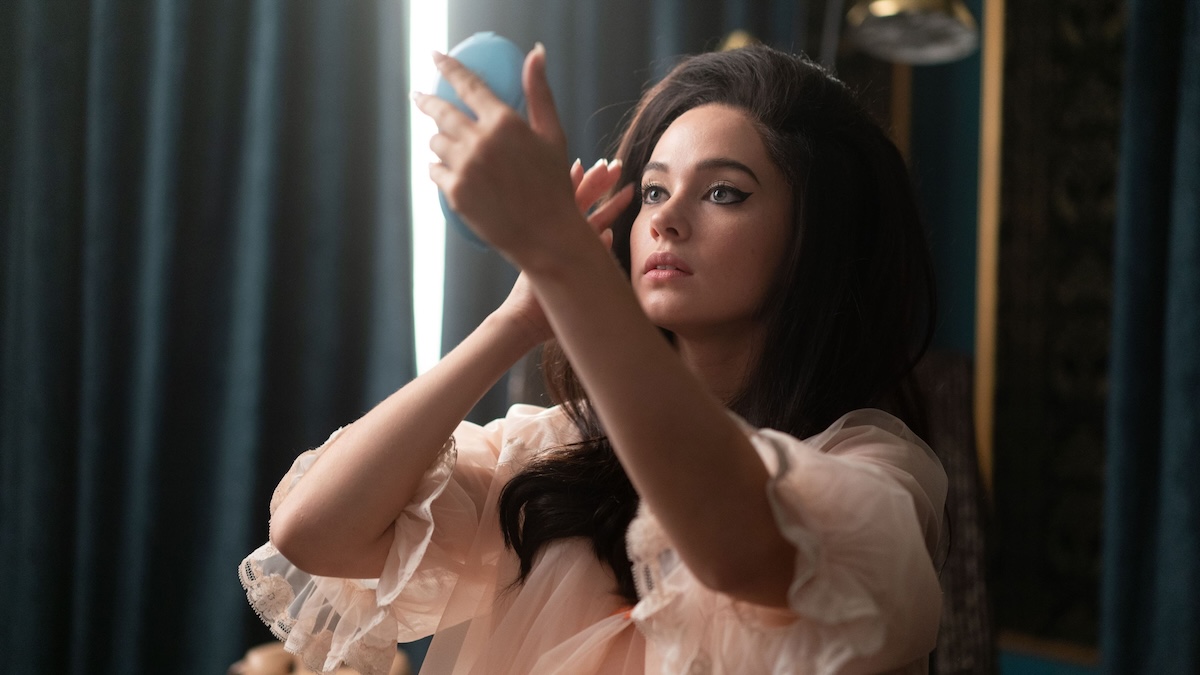
In the decades since the death of the last American “King”, Elvis Presley, there have been countless interpretations of his story in the media. Our obsession with Elvis has never died, but our curiosity about the woman closest to him, who’s been a key figure in preserving his legacy for decades, has been under-examined. Therefore, Priscilla is a much-needed corrective. Fully in her element, Coppola brings high style and haunting clarity to American mythology so enmeshed in our cultural memory that no one’s previously attempted to reexamine it from the perspective of the teenage girl at its heart.
Just recently, Baz Luhrmann’s maximalist biopic Elvis (2022) won several awards, including a Golden Globe for its leading man Austin Butler. While Priscilla Presley was closely involved with both Elvis and Priscilla, in this film her perspective takes centre stage.
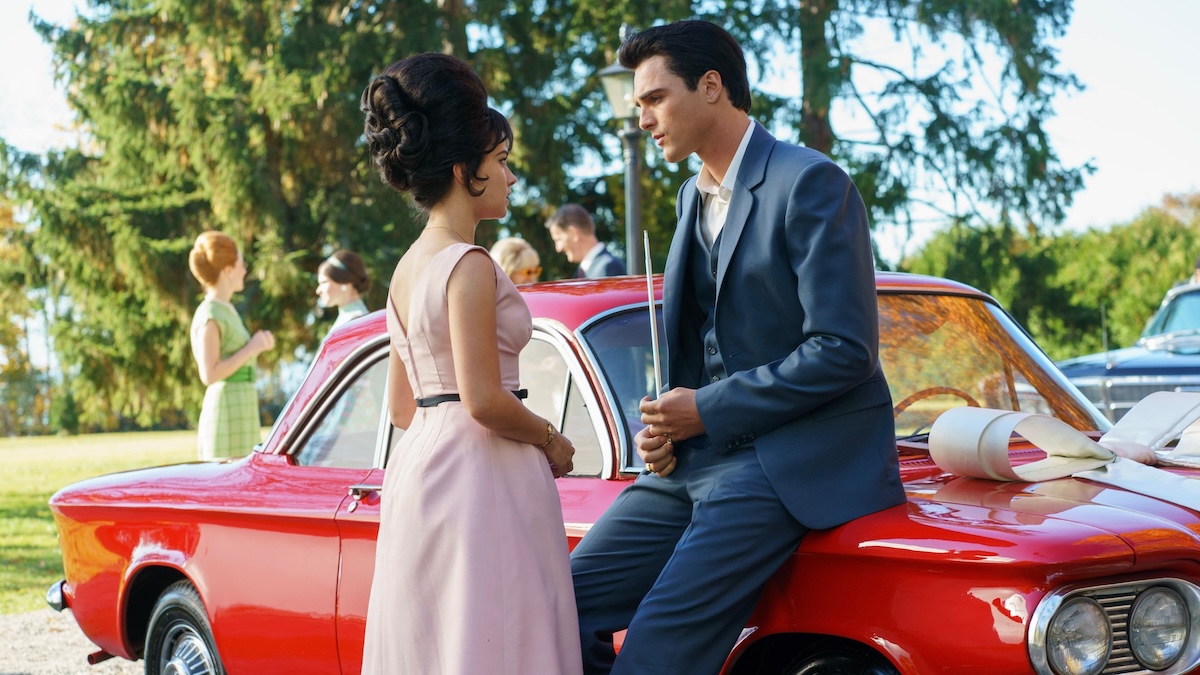
The screenplay’s simplicity and directness are matched by the film’s powerful visual language, which aligns perfectly with its subject matter. Expertly brought to life by Coppola with the collaboration of cinematographer Philippe Le Sourd, the visuals become the film’s driving force. Stacey Battat’s luscious and entrancing costumes, coupled with production and art design that seamlessly marry historical accuracy with Graceland’s dreamlike fantasy, further immerse the audience in the world of the film.
However, this meticulously crafted backdrop would be hollow without the captivating performances of the cast. Cailee Spaeny (The Craft: Legacy) is remarkable as Priscilla, guiding the audience with tenderness through her character’s journey and expressing her inner life with poise and care. Jacob Elordi (Saltburn) portrays Elvis with faithfulness that avoids caricature, capturing a lost and listless vulnerability that makes this one of the most honest and grounded interpretations of the King of Rock n’ Roll to date.
From the opening moments, Priscilla is drenched in Coppola’s signature aesthetic. A swift sequence of images draws viewers into the world of our heroine, introducing her through potent symbols of heightened 1960s femininity: red toenails dig into a pink shag carpet, fingernails painstakingly painted to match, swoops of thick black eyeliner and clouds of hairspray. These close-ups intensify the rituals women perform, sculpting themselves into objects of beauty, validation, and male desire.
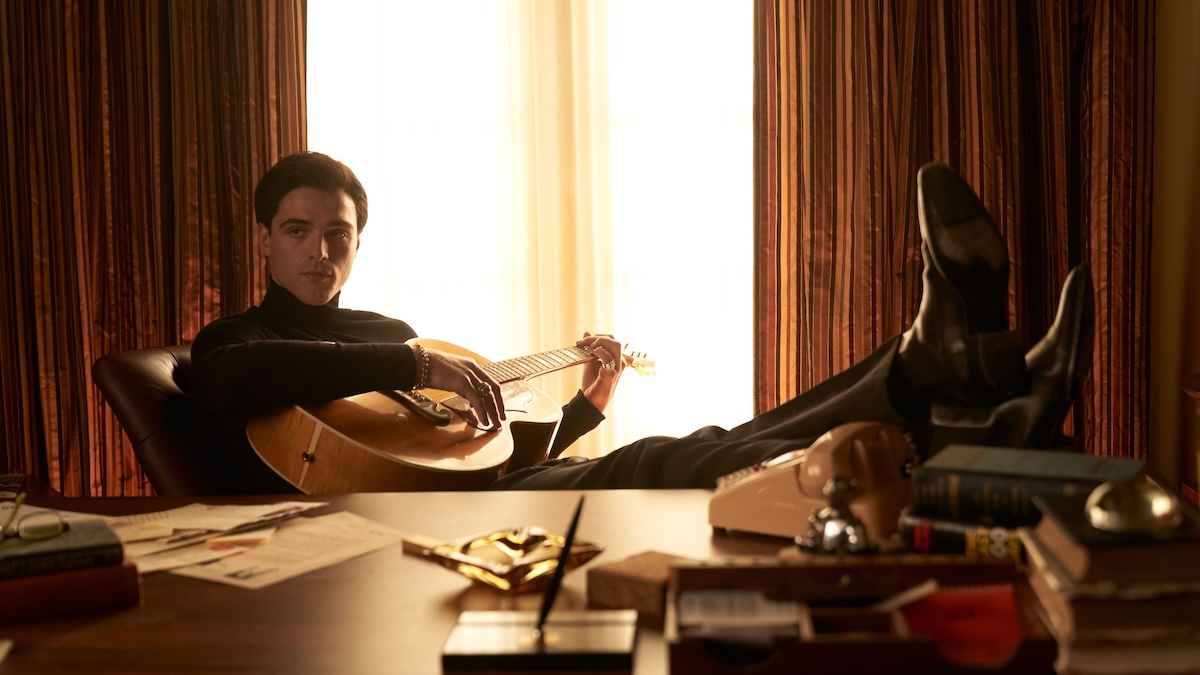
Within moments, Sofia Coppola establishes both the setting and the film’s central conflict. This wasn’t an era where most women felt free to live independently, yet the very source of their limited agency (men) was simultaneously the object of their desires. While the film ultimately focuses on Priscilla and her relationship with Elvis, these opening moments make it clear that her story resonates with countless women raised to believe their ultimate purpose is to make their husbands happy. Coppola meticulously dismantles this outdated belief through Priscilla’s 13-year journey with Elvis, revealing how she both lost and discovered herself within his orbit.
When a 14-year-old Priscilla Beaulieu is invited to a party at Elvis’s house, he immediately takes a shine to her and she is powerless to resist his charm. Having just lost his mother, he’s aching for a confidante, a girl who can be the vessel for his emotional distress. Despite the uncomfortable decade age gap, he trusts her and sees her as a peer—however fraught that may be. She happily steps into the role of the faithful listener, emotionally defending Elvis to her mother by insisting on how badly he needs her and how much she helps him.
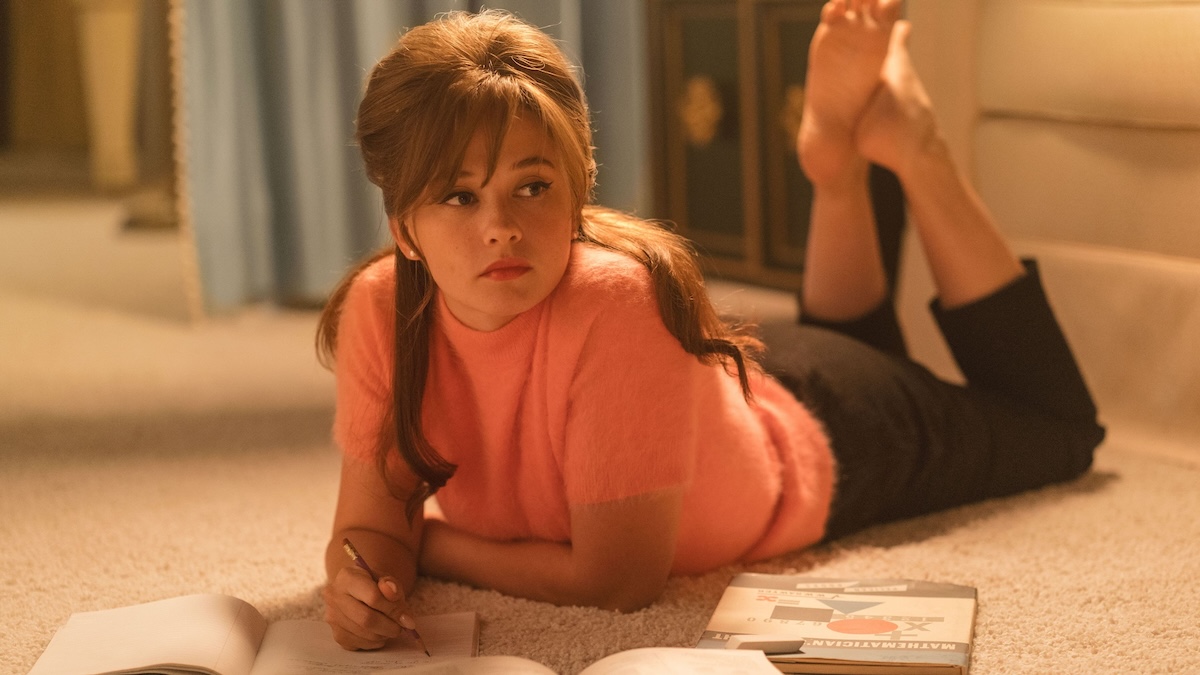
Three years later, Priscilla persuades her parents, with Elvis’ encouragement, to allow her to move into Graceland. However, reality soon dawns. He frequently leaves her alone for months at a time, jetting off to tour and film movies. While Elvis showers her with gifts and affection during his brief returns, these bursts of attention barely compensate for the prolonged periods of isolation she endures, left to wander the cavernous rooms of Graceland as a lone figure. Many scenes make it painfully clear: her role in their relationship is to be the placid, patient, perfect partner who can be everything to him when he needs her and nothing when he’s through.
Most tellingly, their sexual relationship is almost nonexistent. Contrary to what she desires, and to what many people might expect, they rarely make love and Elvis seems to have little more than a passing desire for her. He has little patience for Priscilla, assuming that whatever he wants, she wants as well. In one scene, they engage in a childish pillow fight in his bedroom—giggling and joyful—until she hits him slightly too hard and he turns on her, roughly putting her in her place. “You can’t play without winning,” she tells him tearfully.
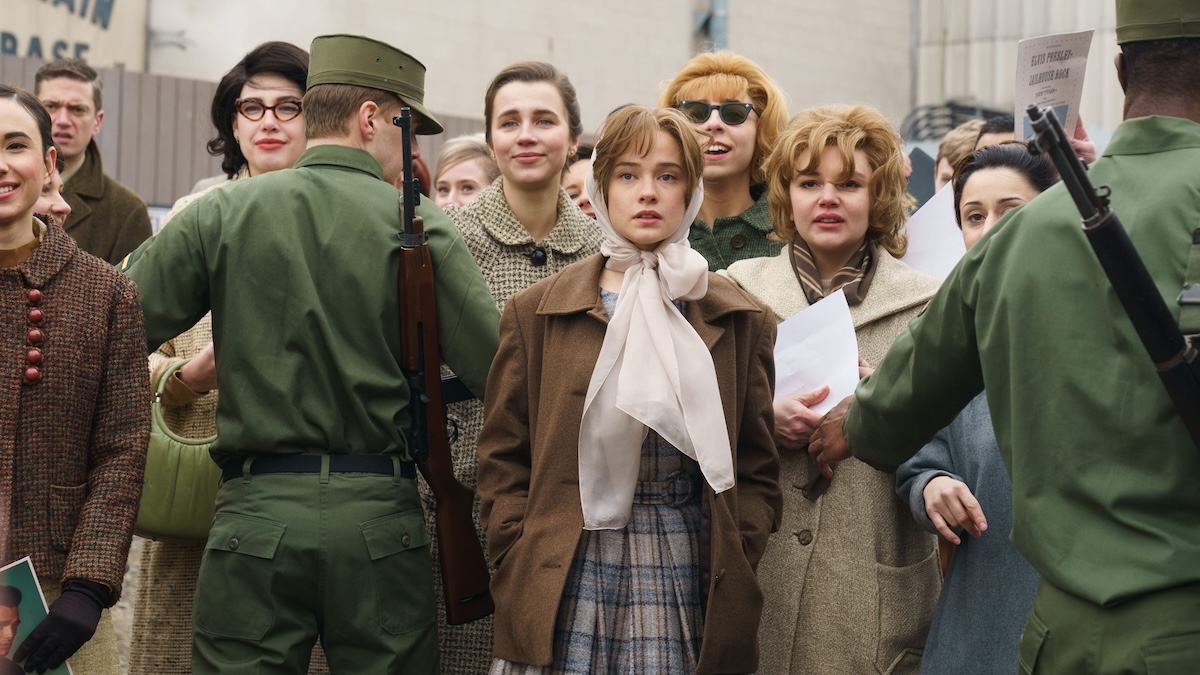
This dynamic, already familiar, feels even more troubling given Elvis’s nonchalant reliance on the prescription drugs and alcohol they share. However, Coppola resists the temptation to cast him simply as a villain. Despite his flaws—the lies, anger, infidelity, indifference, and cruelty—she portrays him with unflinching humanity. This is how Priscilla sees him: an extraordinary musician and performer, yes, but ultimately an ordinary man in his failings as a partner. His downfall isn’t a lack of love for Priscilla, but rather his inability to see her as an equal in their partnership. He clings to the prevailing belief of the time, placing her beside him, forever waiting in his shadow.
With time, she learns to drift above his moods and gradually, the spell he casts on her life loses its power. No longer a child, and no longer satisfied with waiting for happiness he cannot give her, she begins to build a new life. When she finally leaves him at the end of the film he asks her, “Have I lost you to another man?” she replies, “You’re losing me to a life of my own.” Her life with Elvis ends so that her own life can truly begin. How many other women of her generation traced a similar path? With the dawn of the 1970s and the rise of second-wave feminism, thousands of women turned away from their husbands and began to look inward for stability and love. It takes bravery to construct the life you want, and Coppola’s portrait of Priscilla Presley is at its best when it lets her bravery speak for itself. At last, Priscilla takes centre stage.
ITALY • USA | 2023 | 113 MINUTES | 1.85:1 | COLOUR | ENGLISH

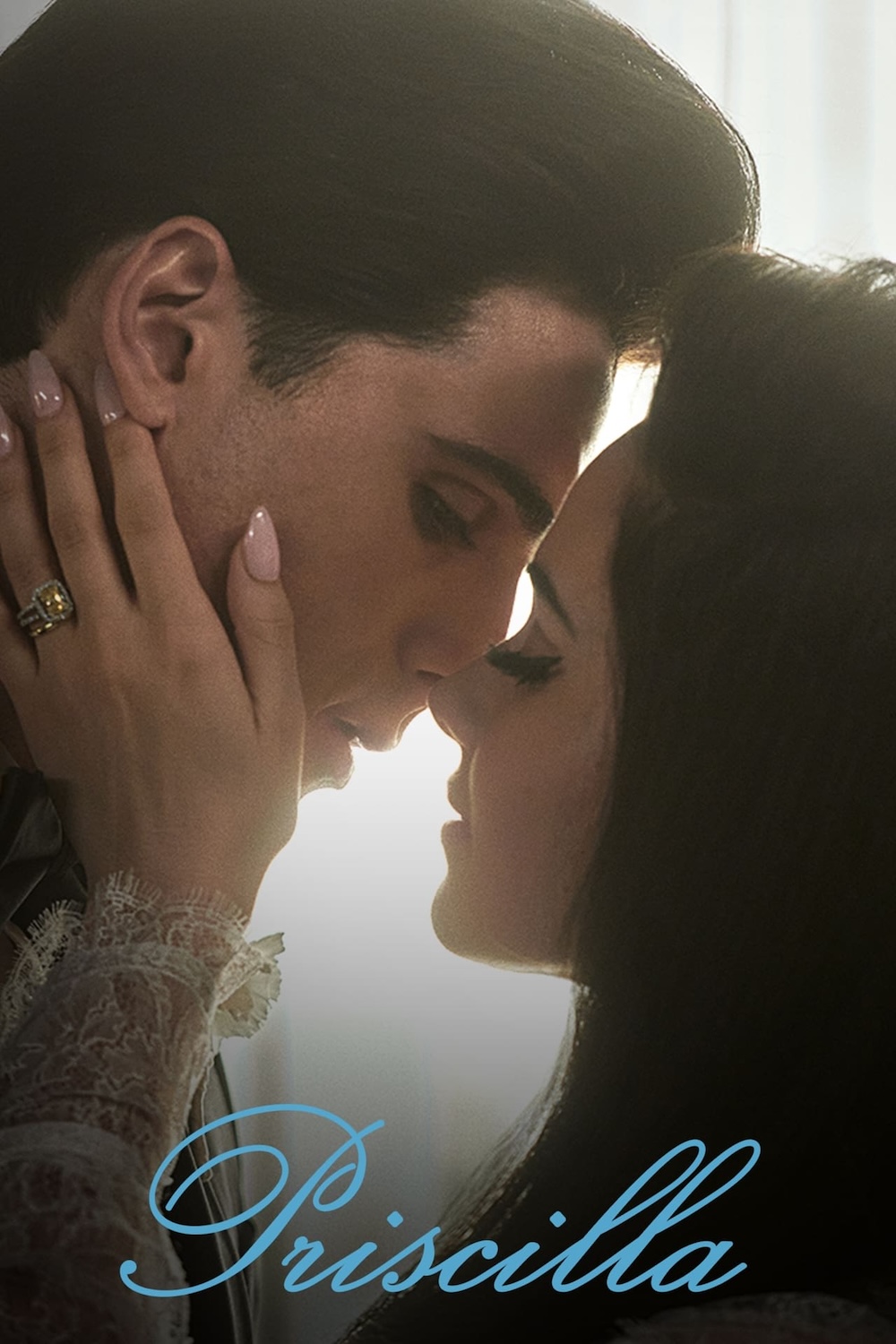
director: Sofia Coppola.
writer: Sofia Coppola (based on the book ‘Elvis and Me’ by Priscilla Presley & Sandra Harmon).
starring: Cailee Spaeny, Jacob Elordi, Dagmara Domińczyk, Tim Post, Lynne Griffin & Daniel Beirne.
